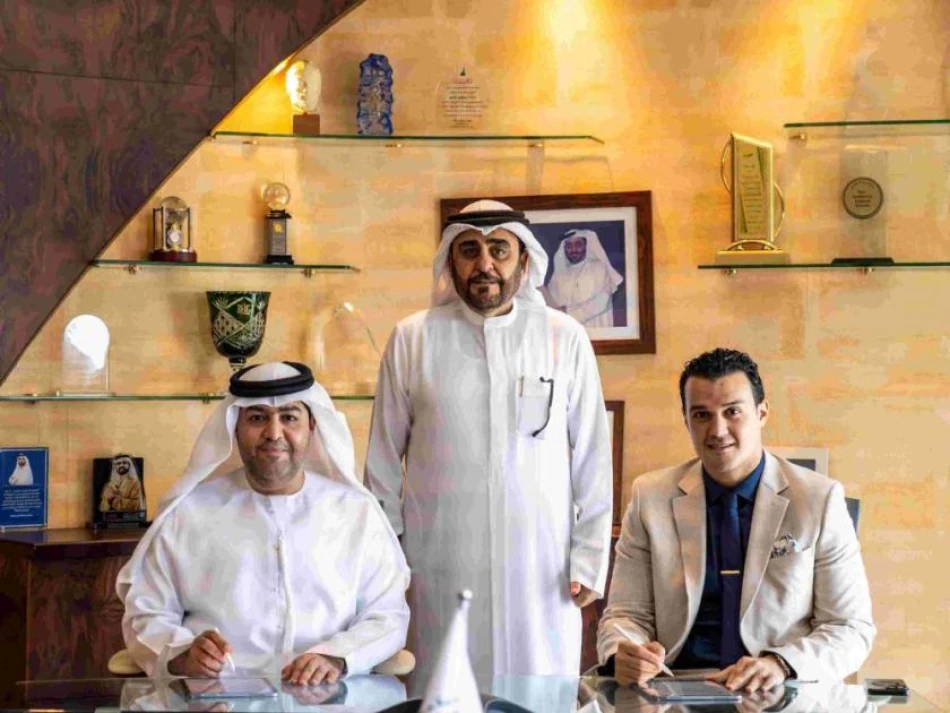
Dubai's Hamdan Bin Mohammed Smart University Collaborates with B3 Global for Strategic Partnership
Dubai's Smart University Partners with P3Global to Bridge Academia-Industry Gap in Knowledge Economy
Hamdan Bin Mohammed Smart University has signed a strategic memorandum of understanding with P3Global, marking another step in the UAE's ambitious push to transform its economy through knowledge-based partnerships. The collaboration aims to develop innovative academic programs and applied projects that prepare Arab talent for future job markets, while strengthening the country's position as a regional hub for sustainable economic development.
Strategic Partnership Framework
The agreement was signed by Dr. Fahad Al Saadi, Vice President of Hamdan Bin Mohammed Smart University, and Tikha Saleem, CEO of P3Global, under the supervision of Dr. Mansoor Al Awar, the university's president. This partnership represents a growing trend in the Gulf region where educational institutions are increasingly aligning with private sector expertise to create market-ready graduates.
The collaboration encompasses several key areas: developing integrated academic programs that enhance national and Arab workforce readiness, launching joint innovative projects, and expanding networks with specialized international institutions. This multi-faceted approach reflects lessons learned from successful education-industry partnerships in Singapore and Switzerland, where similar models have produced measurable economic returns.
Knowledge Economy Transformation
Dr. Al Awar emphasized that the partnership translates the university's strategy of building qualitative alliances between education and industry. "This memorandum embodies the university's vision in supporting multi-sector partnerships and leading innovation pathways that ensure knowledge sustainability and enhance the competitive capacity of the future economy," he stated.
This approach aligns with the UAE's broader economic diversification strategy, which has seen the country invest heavily in knowledge-based sectors as oil revenues become less central to long-term planning. The partnership model mirrors successful initiatives in countries like South Korea and Israel, where university-industry collaboration has driven technological advancement and economic growth.
Practical Implementation and Expertise Exchange
Under the memorandum, the university will provide academic frameworks and specialized support for joint programs and projects, while P3Global contributes its expertise in building knowledge and technology solutions that reflect future market needs. This division of responsibilities creates a clear value proposition for both parties while ensuring sustainable project delivery.
Tikha Saleem expressed pride in the partnership, noting it provides a platform for experience exchange and developing knowledge and technology-based projects that meet the aspirations of vital sectors. The collaboration is designed to achieve innovation and sustainability while creating positive impact on individuals and communities.
Green Economy Leadership Initiative
The partnership reinforces the university's commitment to embedding sustainability concepts through its academic institutions, particularly its College of Sustainability and Green Economy—the first of its kind in the region. This college focuses on preparing future leaders in sustainable development and green economy sectors, positioning the UAE ahead of regional competitors in emerging economic areas.
The college aims to enable students to develop practical and sustainable solutions through flexible and innovative educational programs that align with UAE national priorities and global sustainable development goals. This focus on sustainability education comes at a critical time as the region prepares for post-carbon economic models and increased environmental regulations.
Regional Competitive Advantage
This partnership represents more than an academic collaboration—it signals the UAE's systematic approach to building human capital for emerging industries. By combining local educational infrastructure with international expertise, the country is creating a replicable model that could influence higher education strategies across the Gulf region.
The timing is particularly strategic as global companies increasingly seek locations with skilled workforces capable of handling complex, technology-driven projects. The UAE's investment in such partnerships positions it favorably against regional competitors and establishes a foundation for sustained economic growth beyond traditional sectors.
Most Viewed News

 Omar Rahman
Omar Rahman






